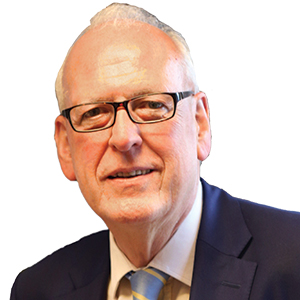The corona experience, though suffused in tragedy, has shown us the very best of ourselves
 It’s perilous, perhaps even foolhardy, to try and write the history of an event as it is still unfolding. But so extraordinary are the times that this is exactly how I am filling the 12 weeks the NHS has instructed me to stay at home along with 1.5 million others deemed to be specially vulnerable.
It’s perilous, perhaps even foolhardy, to try and write the history of an event as it is still unfolding. But so extraordinary are the times that this is exactly how I am filling the 12 weeks the NHS has instructed me to stay at home along with 1.5 million others deemed to be specially vulnerable.
Of one thing I am sure. Henceforth, those who write the history of Britain post 1945 will divide it into BC, Before Corona, and AC, After Corona. Ours is an experience laced with sorrow, loss and widespread anxiety.
Never before have we been both collectivised – the huge surge of extra state power requiring us to be the “Corona state” itself embodying the liberties we have temporarily lent to the government – and atomised at the same time.
It is impossible to be as detached and coolly analytical about what is unfolding as a professional historian should be, but I have chosen two methods to increase my chances. I am keeping a daily “Corona Britain” diary. Historians have a tendency to tidy things up when an event is over. Diaries can be an antidote as we travel a baffling arc in the cycle of our collective and individual histories.
And I have started to write a book about the refreshed and extended duty of care which might make the weather in our post-corona politics and society, and lead to a substantial array of improvements and reforms in the early 2020s that would be a worthy memorial to those we have lost and those we have still to lose, as well as ensuring that the year of loss is not followed by a decade of squandered opportunities and narrow partisan politics.
I have sensed the possibility of this each Thursday evening at eight when we come out of our houses, lean out of our flats and cheer, clap, rattle our pots and pans to show how much we cherish our NHS staff and all who work on the front lines in care homes, pharmacies, stores, transport and delivery or one of the three-quarters-of-a-million volunteers. I am not alone in hearing in that glorious cacophony the sound of a people and a nation rediscovering their better selves.
The question is: can it – will it – be sustained post-corona and be turned into something durable? Long ago we did exactly this in the decisive war and post-war years of the 1940s, which also shaped the Queen and to which she returned in her short but moving address from Windsor Castle last week. That great burst of reform and social betterment was powered by a formidable “never again” impulse – never again would we have to go through an economic slump like that of the 1930s; never again would the bulk of our people suffer chronic multiple deprivations.
In 1942, the greatest social arithmetician of the age, Sir William Beveridge, produced a map for the pathway to reconstruction. He saw “five giants” on the “road to recovery”: WANT, DISEASE, IGNORANCE, SQUALOR and IDLENESS.
Beveridge’s key insight was that all five had to be struck simultaneously if the outer crust of deprivation was to be cracked and the whole scheme would only work if full employment was maintained. There has never been a report like it, before or since.
The wartime coalition government of Winston Churchill began the implementation; the Attlee governments of 1945-51 completed it. It was the heart of a post-war consensus, of Britain’s post-1945 “new deal”.
A new Beveridge is above all what post-corona Britain needs. We already have the “never again” impulse. Can we find the people to draw us such a plan? Can we see those in the political class who can conjure the words to carry the spirit and the skills to turn it into policy and practice?
Brexit wore us out – three-and-a-half scouring, souring years in which the worst characteristics of our politics were on display. The corona experience, though suffused in tragedy, has shown us the very best of ourselves once more.
We can do it. It is entirely up to us. The road to 2050 can be the remaking of us; a high road, not a low road for the country and our people to travel.
Peter Hennessy is Attlee Professor of Contemporary British History
at Queen Mary University of London and an independent crossbench peer.


 Votes : 0
Votes : 0









